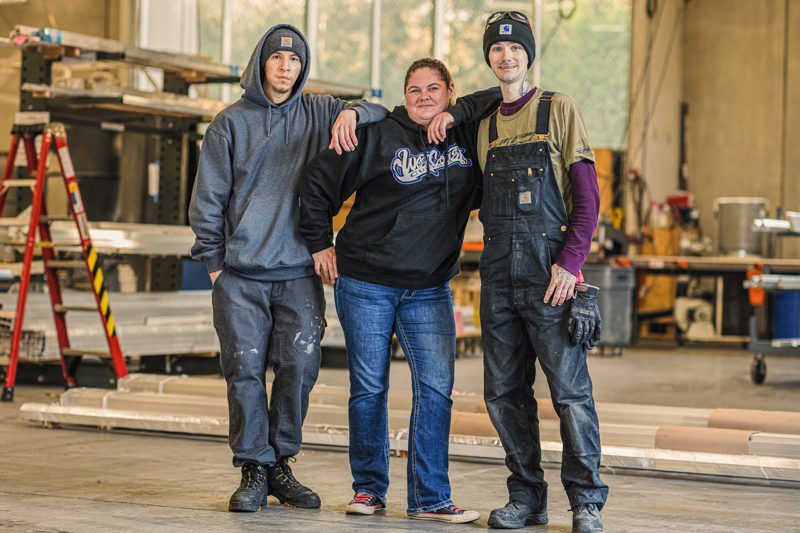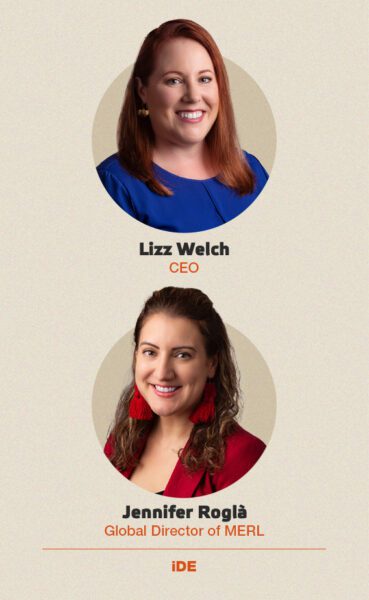Redefining the Fundraising Journey for Impact Startups
A blueprint for success for businesses

Josh - Employee of Pallet Shelter
There are two open jobs for every unemployed person in America, yet businesses continue to struggle to hire and retain talent. However, there is a hidden workforce that not enough companies, particularly small- and medium-sized businesses (SMBs), are taking a chance on, at least not yet. That includes those who have navigated the criminal legal system, a group that the majority of business owners and human resource leaders report performs the same or better than other employees and shows greater retention rates.
You might be surprised that approximately one-third of working adults in the U.S. have an arrest or conviction record. When these individuals exit the criminal legal system, there is immense pressure to find work and start their next chapter. Yet finding meaningful employment can be difficult, particularly in rural areas and at private sector companies. I believe all employers have a responsibility to make this process easier.
Patrick Arney, Executive Director of Weld Seattle, an organization dedicated to supporting formerly incarcerated individuals, believes that investing in people’s future rather than focusing on their past benefits society. At a recent panel on solving the homelessness issue in the US, he stated, “Our capacity to foster stores of redemption and offer support is a reflection of our society’s collective welfare”.

Sarah Al Khalil – Pallet Shelter Employee
Known widely as second chance employment, a more equitable and appropriate term is fair chance employment. Because for many, this might be their first chance. No matter the context, we all deserve opportunities in life, and we need more SMB employers who are willing to give all people in our workforce a fair chance, including not only those with histories of justice system involvement but those who may have experienced homelessness, are in transitional housing, or recovering from substance use disorder.
There is a hidden workforce that not enough companies, particularly small- and medium-sized businesses (SMBs), are taking a chance on.
As a fair chance-friendly employer, a majority of our employees are formerly homeless, in recovery, or previously involved in the justice system. We’ve seen firsthand the benefits it has brought to our business, as well as our community, by supporting deserving people who need someone to believe in their abilities. I want to share what we have learned and help other SMBs to be successful with hiring this hidden workforce.
It’s beneficial for employers new to fair chance employment to hire several fair chance employees at or around the same time as additional new hires. This way you avoid singling out any one person and can provide an environment where employees can relate to one another through their common experiences. Additionally, hiring in groups can allow management to train employees together, and have more opportunities to see what is working vs. what is not working. Fair chance hiring should also not be limited to entry-level positions; employers need to consider all positions including leadership and management.
Not all jobs can be flexible with work hours, but the pandemic has certainly challenged all industries to get creative in this area. Just as employers have become flexible for doctor appointments, obtaining driver’s licenses, and more, employers will need to understand that there may be additional absences a fair chance employee will require. For example, an individual may need to complete court-ordered requirements like outpatient treatment and parenting classes. If an individual does not have a driver’s license or personal vehicle, they may rely on public transportation which could also cause challenges with their work schedules. To be successful, employers need to be flexible with their policies, ensuring they can meet their desired business outcomes while also providing accommodating schedules that allow for these extra responsibilities.
You might be surprised that approximately one-third of working adults in the U.S. have an arrest or conviction record.
Speaking with Jessie, a CAD Designer in Pallet’s engineering department shows just how far supporting a fair chance employment model can go “I’m able to help my fiancé, who in turn helps the kids, who in turn helps her parents. Just with this one job, you’ve already helped six people,” Jessie shared. “That’s not even including everybody else that I’ve been able to touch because of this job. You’re turning around not just one life, but a handful.”
One of the most important things a business can do when implementing a fair chance employment strategy is to be transparent in the marketing and hiring processes. The goal is to show that your business is welcoming to all. This might even include not requiring resumes for certain positions or calling attention to the fact that new employees will learn the required skill onsite. Multiple research studies have confirmed that organizations that make an active effort to practice diversity, equity, and inclusion benefit from higher productivity, better employee retention, and an overall boost in morale.

Marcus, Jennifer, and Alan – Pallet Shelter Employees
While some businesses include a fair chance detail on job listings, others are featuring fair chance employee profiles on their blog, social media, and other company materials. By being transparent and highlighting stories of real people, businesses will help other potential fair chance applicants feel welcomed and not singled out for their past experiences when applying for open positions. The more we share, the more we encourage others in the private sector to follow suit.
Being transparent can also help create a stronger internal culture among staff. Sharing experiences and opening up to one another strengthens bonds between team members and can even increase loyalty to the company.
Many business owners may be unaware that federal and state tax credits are available to employers who hire people from groups that face significant barriers to employment. Pallet Shelter utilizes the Work Opportunity Tax Credit, a federal program. The credit ranges from $1,200 to $9,600 depending on the targeted group hired, including formerly incarcerated people, vocational rehabilitation referrals, and Supplemental Nutrition Assistance Program (SNAP) recipients. Pallet uses the tax credit to fund programs and services provided to staff, such as manufacturing training, life skills training, and personal support services.
Known widely as second chance employment, a more equitable and appropriate term is fair chance employment.
In addition, we are a certified living wage employer, and pay a living wage to ensure employees have financial stability and provide health insurance and employer-sponsored savings programs to support employees’ personal, professional, mental health and financial growth. This helps employees dedicate themselves to one job, versus needing several part-time jobs to make ends meet.
The “ideal” job candidate in today’s world is changing. Employees that are dedicated to your mission, interested and engaged in their work, and willing to contribute to the team in a meaningful way are highly desired and sometimes hard to find. Specific industry skill sets can often be taught on the job, but passion, interest, and urgency are inherent. Don’t overlook your next best hire, prioritize fair chance.
Related Content
Comments
Deep Dives
RECENT
Editor's Picks
Webinars

Featuring
Lizz Welch & Jennifer Roglà
iDE
May 16 - 12:00 PM EST
News & Events
Subscribe to our newsletter to receive updates about new Magazine content and upcoming webinars, deep dives, and events.
Become a Premium Member to access the full library of webinars and deep dives, exclusive membership portal, member directory, message board, and curated live chats.
0 Comments